Search Results
Showing results 601 to 620 of 1734
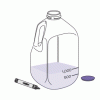
Lungometer
Source Institutions
In this environmental health activity, learners investigate their own vital lung capacities.
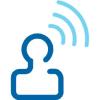
Catch the (Sound) Wave!
Source Institutions
See and hear how sound waves travel through different types of materials. Extend the experiment online and learn how you can "see" with sound waves using ultrasound.
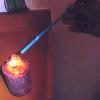
Hot Stuff!: Testing Ice
In this demonstration, learners compare and contrast regular water ice to dry ice (frozen carbon dioxide). Both samples are placed in a solution of acid-base indicator.
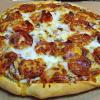
Food for the Brain
Source Institutions
In this activity, learners dissect a piece of pizza to learn about nutrients important for health.
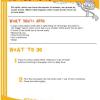
Ocean in a Bottle
Source Institutions
In this simulation activity, learners observe what can happen when ocean waves churn up water and oil from an oil spill.
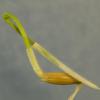
Germination Station
Source Institutions
In this botany activity, learners will create an experiment about seed germination. This activity gives students an opportunity to explore how seeds germinate and react to surrounding conditions.

Measuring Blood Pressure in Space
Source Institutions
In this activity (page 105 of the PDF), learners measure heart rate and blood pressure and learn how to obtain consistent measurements during repeated tests.
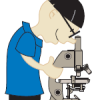
What Cells Can I See in Muscle and Spinal Cord Tissues?
Source Institutions
In this activity (page 37 of the PDF), learners observe, on a prepared slide, muscle and spinal cord cells from a rat.
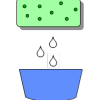
Measurement: It Takes Ten
Source Institutions
In this math lesson, learners practice estimation and measurement skills as they move from station to station calculating length, volume, weight, and area.
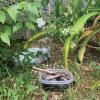
Build A Bee Bath
Source Institutions
In this activity, learners use found natural materials to create a water haven for bees and other insects.

Seeing Your Blind Spot
Source Institutions
This activity (aka "snack") provides instructions for discovering your blind spot. It is an exploration of light and visual perception using simple materials you may have around the house.
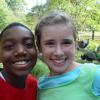
BioBlitz
Source Institutions
In this activity (on page 2 of the PDF under GPS: Biodiversity Activity), learners will pair up and take a notebook outdoors to a selected location to observe and record a list of living things that t
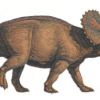
X-ray Dinosaurs
Source Institutions
In this activity, learners explore dinosaur fossils and skeletons. First, learners listen to "Tyrannosaurus Rex" by Daniel Cohen to learn about T. rex dinosaurs specifically.
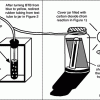
How Greenhouse Gases Absorb Heat
Source Institutions
Learners observe two model atmospheres -- one with normal atmospheric composition and another with an elevated concentration of carbon dioxide.
The Return of El Nino
Source Institutions
In this activity related to climate change and data analysis, learners examine temperature and precipitation data to determine if climate variations are due to El Niño.
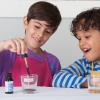
What Does Spit Do?
Source Institutions
Some animals can swallow food whole, but humans have to chew. In this activity, learners will investigate what saliva does chemically to food before we even swallow.

Wolf Postures
Source Institutions
In this activity, learners investigate how wolves communicate with each other through different body postures.
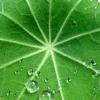
Lotus Leaf Effect
Source Institutions
This is a demonstration about how nature inspires nanotechnology. It is easily adapted into a hands-on activity for an individual or groups.
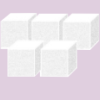
Sweet Measurements
Source Institutions
In this activity on page 3 of the PDF, learners investigate how much sugar is in a soda. Learners use sugar cubes to measure and calculate the amount of sugar in a bottle of soda.
Test Your Lung Power
Source Institutions
In this activity, learners try to blow up a balloon hanging inside of an empty bottle.
